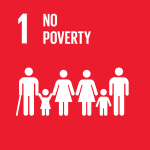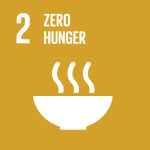By Joan, Josep and Jordi Roca, Internationally-renowned chefs and UNDP Goodwill Ambassadors
Food gives us joy. Food gives us life. Food sustains and gives jobs to billions of people. But with our world in chaos, it is time we embrace a new vision for climate-resilient agriculture, food security and gastronomy that puts our people and our planet front and centre.
This will be a cornerstone of global efforts to build back greener from the COVID-19 pandemic and address the fast-converging crises of famine, climate change, migration, habitat destruction and environmental degradation that are pushing millions into hunger and poverty worldwide.
According to the World Food Programme more than 135 million people face crisis levels of hunger, while an additional 130 million are on the edge of starvation as a result of COVID-19 and the global lockdown. That’s more than the total populations of Germany, Spain and the United Kingdom combined.
Imagine if every man, woman and child in your nation suddenly didn’t have enough to eat. Imagine what this means for peace. What it means for security. What it means for the future.
Now take those risks and multiply them by about a million to see what will happen if we as a global community fail to rise to the existential challenge of addressing climate change.
Agriculture and food are the backbone of our society. As UNDP Goodwill Ambassadors, we believe strongly in the power of food to achieve each and every one of the UN’s Sustainable Development Goals (SDGs).
We believe in the power of food to give people jobs and enough food to eat. We believe in the power of food to unite the nations of the world. We believe in the power of food to protect our planet. And we believe in the power food to spread hope and compassion in a world gone mad.
Take a look at the impact of agriculture on the economy and environment. This is the main pillar of world commerce. An estimated 2.5 billion people across the globe are employed in agriculture and rural landscapes--that’s about one in three.
Agriculture also contributes about a fifth of total greenhouse emissions and is one of the primary causes of biodiversity loss.
Environmental degradation and adverse impacts of climate change on food and agricultural systems, through losses from intensified droughts and rainfall variability, sea-level rise and other climate-change related impacts in turn exacerbates the risk of new and even more virulent global pandemics. It triggers people to migrate, disrupts economies and derails efforts to achieve the SDGs.
Taken together, it’s clear to see that we need to rethink the way we view food and come together to support a new vision for climate-resilient agriculture and food security.
Work is already underway. In Zambia, UNDP, the Food and Agriculture Organization of the United Nations (FAO) and WFP are supporting three million small-scale farmers to build climate resilient lives. With financing from the Green Climate Fund (GCF), modern technology, sustainable growing techniques and a better understanding of climate risks are being used to transform agriculture in a country where close to half of the population is unable to meet daily nutrition requirements and more than a third of children under five are stunted.
In Sudan solar-powered water pumps have been introduced to support smallholder farmers in producing more food, more efficiently. In Cambodia, ongoing climate resilience projects are dovetailing with the COVID-19 response to protect vulnerable communities.
The entire food value chain needs to be transformed, all the way from farm to fork. This means that we need to rethink storage, refrigeration, rural-urban synergies, transit, policy, markets and consumer habits. We need to rethink what we eat and how we enjoy food.
Consumers can do their part by making a gradual shift toward plant-based diets, and by supporting organic local food producers. Businesses can do it by charting new territories and business practices that will future-proof food systems and the very economy of food production. Governments can do it by embracing new visions for nature, climate and energy that put people and the planet first.
Food is an essential component of our human existence. It should be shared by everyone. Join us in calling for a global transformation to climate-resilient agriculture and supporting the nations worldwide in feeding our people in these trying and difficult times.
This article was originally published in Spanish here.
About the Authors
Internationally acclaimed chefs Joan, Josep and Jordi Roca, from Spain, were appointed as UNDP Goodwill Ambassadors on 18 January 2016. As Goodwill Ambassadors, the brothers continue to advocate for better nutrition and food security to promote sustainable development and how food choices, or lack of choices, impact health and the environment.



